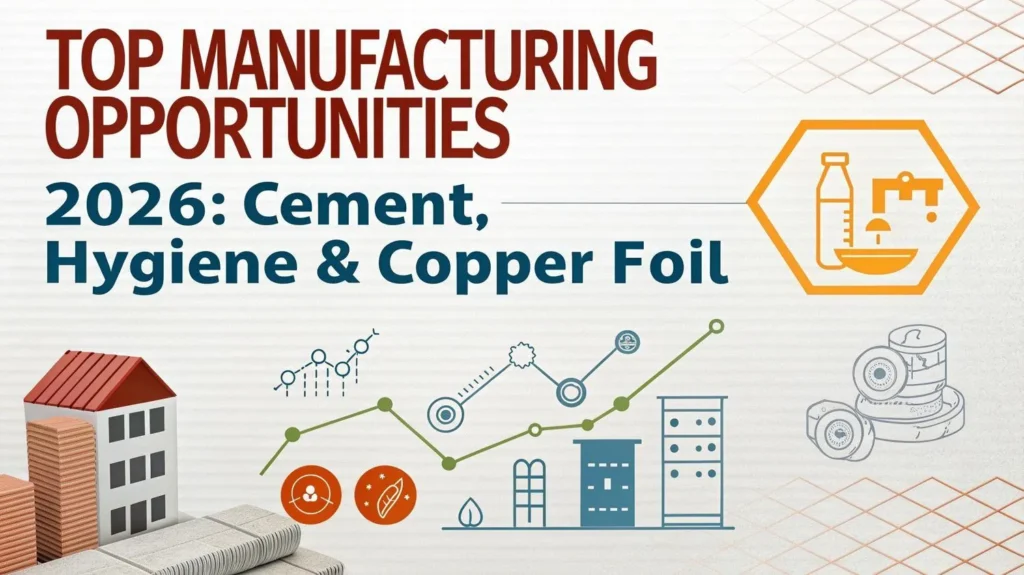The motorcycle industry is continuously evolving with innovation and performance enhancements. Among the most in-demand upgrades for motorcycles today are alloy wheels. Lightweight, durable, stylish, and performance-enhancing, alloy wheels have become a standard across modern two-wheelers. As we enter 2025, starting an alloy wheel industry for motorcycles presents a highly profitable and scalable business opportunity, especially in emerging markets like India and Southeast Asia. However, a lesser-known yet critical component in the manufacturing process is non-woven geotextile, which has diverse industrial uses including in filtration, reinforcement, and insulation – and is increasingly being utilized in alloy wheel production environments for operational efficiency.
Starting the Alloy Wheel Industry for Motorcycles: A Step-by-Step Guide
Understanding the Market Potential in 2025
The global motorcycle market is projected to witness significant growth in 2025 due to urbanization, rising disposable incomes, and the increased demand for fuel-efficient two-wheelers. With customers now more conscious of performance and aesthetics, the demand for aftermarket and OEM alloy wheels is soaring. This makes the entry into the alloy wheel manufacturing sector not just timely but also highly strategic.
Key trends to leverage include:
- Electric motorcycle expansion
- Lightweight component demand
- Customization and style preferences
- Sustainability in manufacturing processes
Conducting Feasibility Research
Before initiating operations, conduct a comprehensive market feasibility study to:
- Understand customer preferences (size, design, price points)
- Identify local and global competitors
- Analyze raw material sourcing (aluminum, silicon, magnesium)
- Examine environmental compliance needs
- Explore the use of non-woven geotextile in manufacturing setups, especially for creating durable and clean work surfaces and reducing contamination in casting areas.
Non-woven geotextile helps maintain a clean working environment, reduces slippage in casting zones, and plays a role in moisture control—thereby optimizing the quality of alloy wheels.
Legal Requirements and Registration
Starting a manufacturing industry involves regulatory and legal steps:
- Register the business (LLP, Private Limited, etc.)
- Obtain GST registration
- Acquire factory license and environmental clearances
- Secure UDYAM registration for MSME benefits
- Apply for pollution control board NOC, especially if using chemicals or generating emissions
Ensuring safety and environmental standards is vital. Using non-woven geotextile as part of your infrastructure demonstrates a commitment to green practices, which is appreciated by regulators and consumers alike.
Location and Infrastructure
Choose a strategically located industrial area with:
- Good road connectivity for logistics
- Availability of skilled labor
- Uninterrupted power and water supply
- Space for future expansion
The layout of your facility should have:
- Casting and melting section
- CNC machining and finishing section
- Powder coating/painting unit
- Inspection and packaging zone
- Storage units with non-woven geotextile layers to protect finished wheels from moisture and dust
These materials can be laid on floors and shelves to act as dust repellents and humidity controllers, preventing surface degradation of the alloy wheels.
Machinery and Equipment Required
The core machinery required includes:
- Induction melting furnace
- Low-pressure die casting machine
- CNC machining center
- Shot blasting and deburring machines
- Painting or powder coating booths
- Testing equipment (X-ray, run-out, tensile strength)
Additionally, procurement of non-woven geotextile rolls for workspace optimization, safety compliance, and operational efficiency is recommended. Its application in equipment padding, vibration control, and filtration systems is gaining popularity.
Raw Materials Procurement
Key materials for alloy wheel manufacturing:
- Aluminum alloy (main component)
- Silicon, magnesium (for added strength)
- Paints and finishes
- Packing materials
- Non-woven geotextile, especially for lining molds and surfaces to prevent contamination
Ensure that your suppliers follow industry standards. Look for recyclable aluminum sources and non-toxic coatings to align with sustainability goals.
Skilled Workforce Hiring
Your workforce must include:
- Metallurgists
- CNC operators
- Quality inspectors
- Mold design engineers
- Coating specialists
- Maintenance personnel
Training programs should also educate workers about the proper use and disposal of non-woven geotextile products, which are essential for process cleanliness and safety.
Production Process Overview
- Melt Aluminum Alloy: Metal is heated in induction furnaces.
- Casting: Molten metal is poured into die-cast molds to form wheel shapes.
- Cooling & Deburring: Solidified wheels are removed and excess material is cut off.
- CNC Machining: High-precision machines shape the final wheel profile.
- Surface Treatment: Shot blasting for smooth finish and powder coating/painting.
- Quality Control: X-ray and mechanical tests ensure zero defects.
- Packaging: Protected using non-woven geotextile layers inside boxes to avoid scratches or corrosion during transport.
This process flow ensures high-quality production aligned with industry benchmarks.
Marketing and Branding Strategy
To stand out in the competitive market:
- Build a brand around durability, performance, and aesthetics.
- Offer a wide range of designs for scooters, sports bikes, and cruisers.
- Provide customization services for B2C clients.
- Create strong dealership and OEM partnerships.
- Use online marketing, influencer partnerships, and auto expos.
Showcasing your eco-friendly practices, such as the use of non-woven geotextile, enhances your brand’s image among eco-conscious consumers.
Financial Planning and Investment
Initial investment estimate (in INR for a medium-scale setup):
- Land & Building: ?40-50 Lakhs
- Machinery: ?60-80 Lakhs
- Raw Materials: ?15-20 Lakhs
- Labor & Operational: ?10-15 Lakhs
- Marketing & Distribution: ?10 Lakhs
- Miscellaneous (including non-woven geotextile materials): ?5-10 Lakhs
Total Investment Range: ?1.4 Crore – ?1.8 Crore
Break-even is usually achieved in 18-24 months, depending on market capture.
Role of Non-Woven Geotextile in Manufacturing
Though traditionally used in civil engineering and infrastructure, non-woven geotextile is gaining popularity in manufacturing environments due to its:
- High tensile strength and chemical resistance
- Filtration properties in dust-prone areas
- Use in creating anti-slip surfaces in production zones
- Prevention of corrosion and moisture damage during storage
- Reusability and eco-friendliness
Integrating non-woven geotextile across your facility not only improves working conditions but also ensures better product output by controlling environmental factors.
Challenges and Risk Management
Every business faces obstacles. Common challenges include:
- High competition from established players
- Fluctuating raw material prices
- Skilled labor shortage
- Regulatory hurdles
Risk mitigation tips:
- Sign long-term contracts with raw material suppliers
- Invest in staff training and automation
- Use advanced environmental controls, like non-woven geotextile, to reduce process variability
- Stay compliant with ISO certifications for quality and safety
Government Support and Incentives
Governments in countries like India offer various benefits to promote manufacturing:
- Capital subsidies
- Low-interest loans under Mudra/Yojana schemes
- MSME support programs
- Export promotion incentives
Many green initiatives also reward industries adopting sustainable materials like non-woven geotextile, creating dual benefits—cost-saving and goodwill generation.
Conclusion
Starting an alloy wheel industry for motorcycles in 2025 is not only timely but aligns well with current automotive trends. By strategically investing in infrastructure, advanced machinery, skilled labor, and eco-conscious practices, entrepreneurs can build a profitable venture in this sector. Moreover, integrating versatile materials like non-woven geotextile within the production environment offers enhanced process stability, cleanliness, and safety—elements that are essential in achieving global standards in quality and operational excellence.
With rising consumer demand, governmental push for manufacturing, and the growing appeal of custom performance parts, 2025 is the perfect time to roll into the alloy wheel business—well-prepared and well-equipped.
Visit the page Select and Choose the Right Business Startup for You for sorting out the questions arising in your mind before starting any business and know which start-up you can plan.
We, at NPCS, endeavor to make business selection a simple and convenient step for any entrepreneur/startup. Our expert team, by capitalizing on its dexterity and decade’s long experience in the field, has created a list of profitable ventures for entrepreneurs who wish to diversify or venture. The list so mentioned is updated regularly to give you a regular dose of new emerging opportunities.





